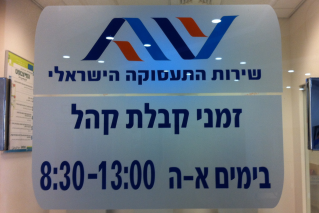
ACRI has released a new report on the state of vocational training in Israel and how the State has neglected the unemployed, the working poor, adults and women.
Vocational training has two main functions: First, it gives the student professional skills that allow them to integrate, maintain and develop employment, thereby helping to reduce disparities in society and to fight poverty. Second, it trains skilled workers in accordance with the needs of the present economy and in line with expectations for the future. This contributes to improved labor productivity and economic growth.
OECD countries are investing a lot in vocational training, as part of the so-called “Active Employment Policy”. They understand that this is the key to a high rate of employment, economic growth and future possibilities for their residents. So what about Israel? According to the Manufacturers Association, Israel lacks tens of thousands of skilled workers. The OECD report reached a similar conclusion, and described the growing shortage of skilled professionals and trained workers as a threat to Israel’s economy. However, no government policy has addressed this threat seriously.
Our new report, written by Michal Dagan and edited by the Director of ACRI’s Public Outreach Department, Attorney Tali Nir, focuses on the people that the State is neglecting: The unemployed, the working poor, the overworked, adults aged 45, those who receive income support and women. The report presents a series of recommendations regarding budgets, legislation, co-operation and partnerships, research and more. Poverty, social gaps and the increasing lack of professional and skilled human resources are a threat to Israel’s economy and society.
Please click here to access the report in Hebrew.







